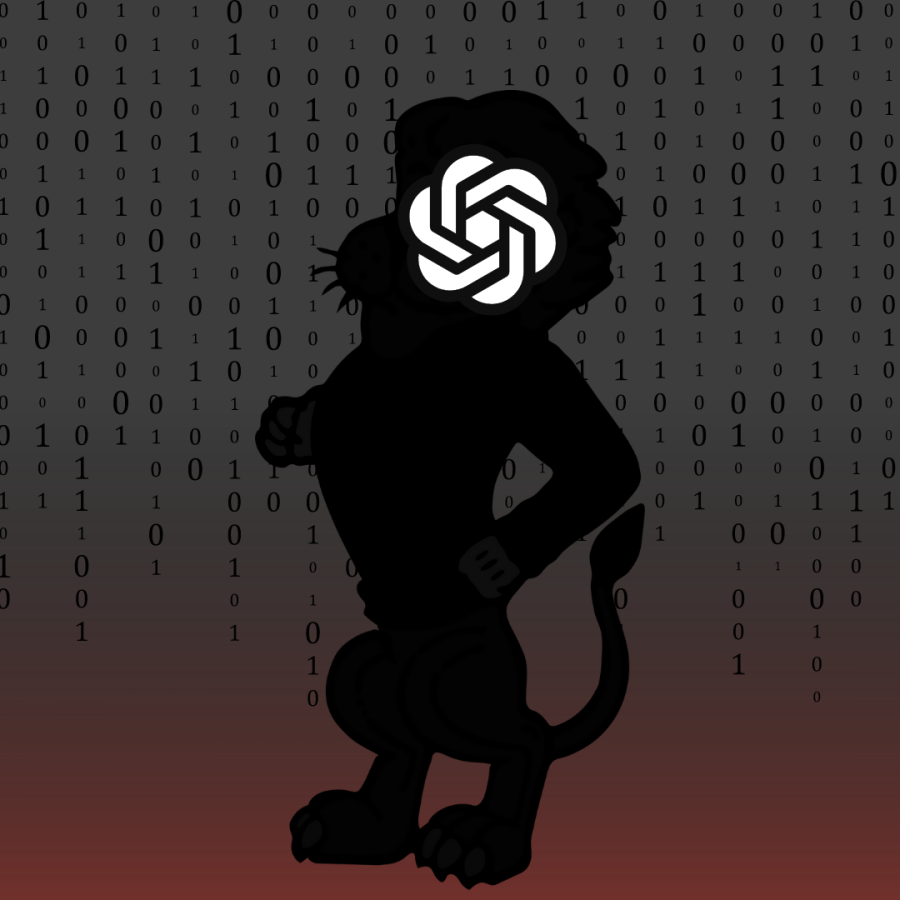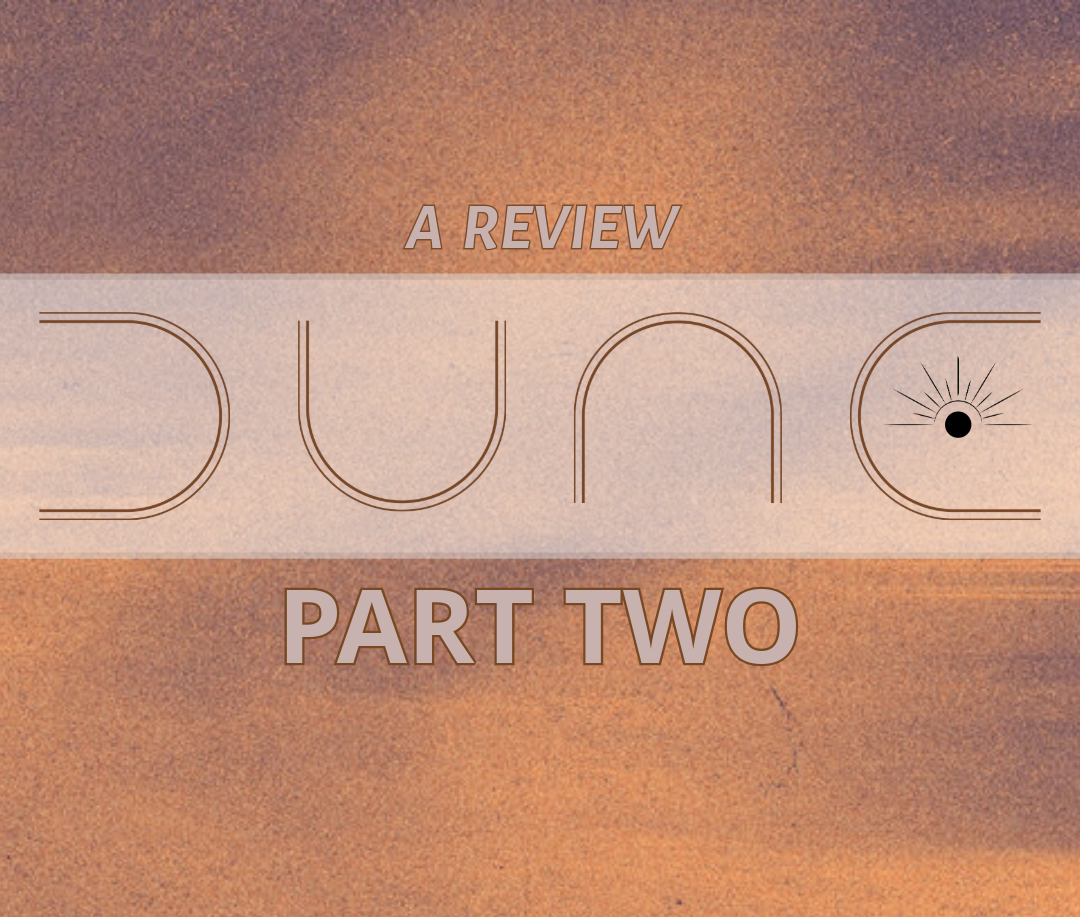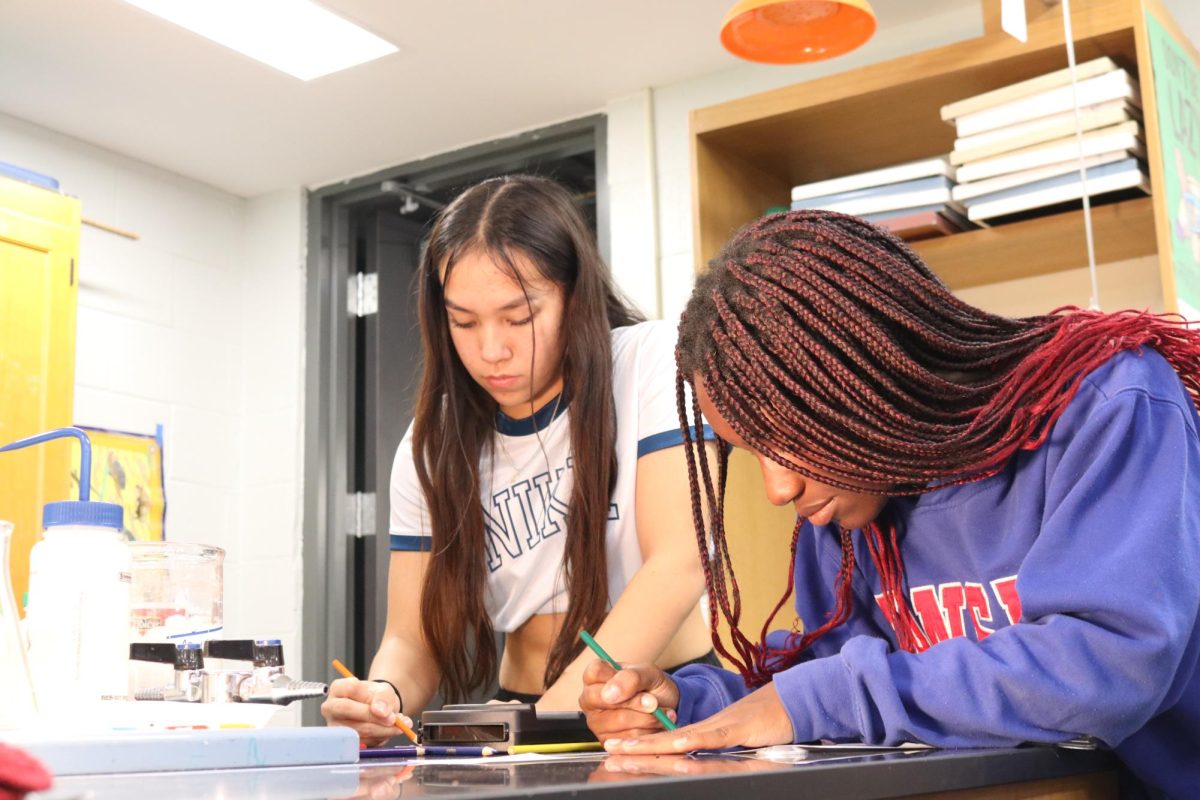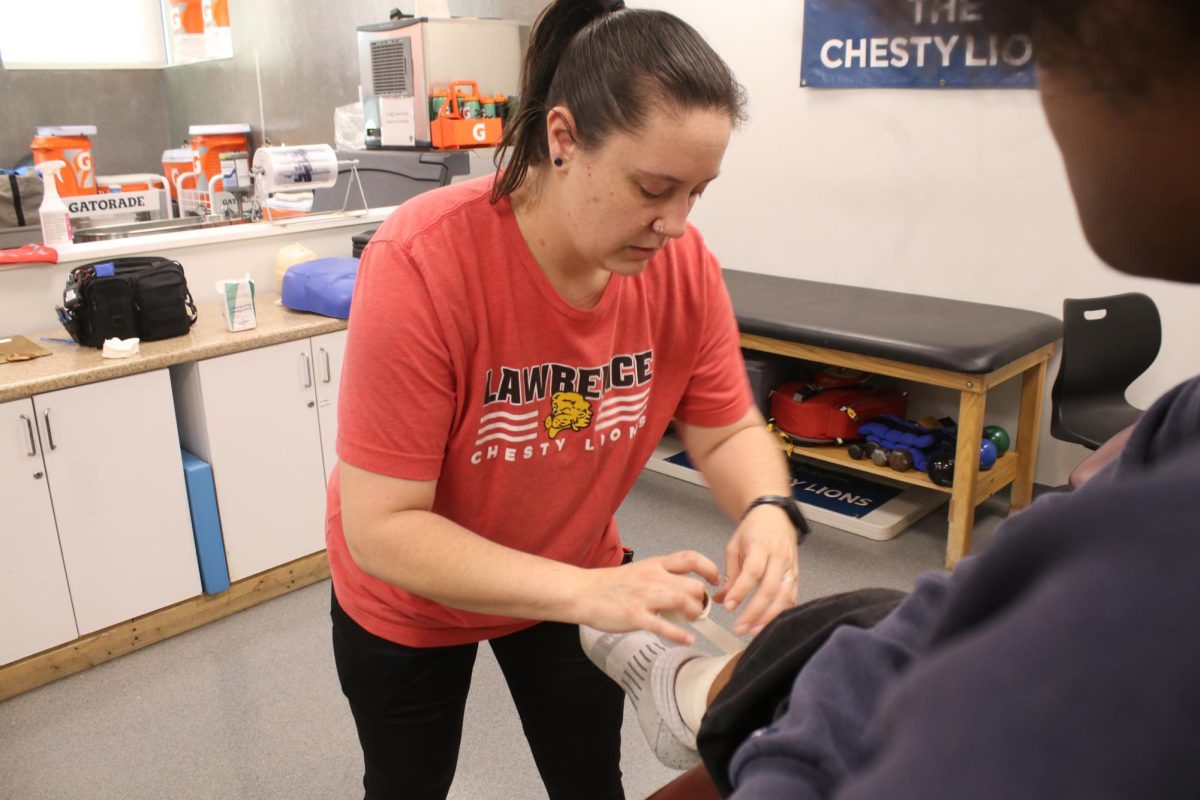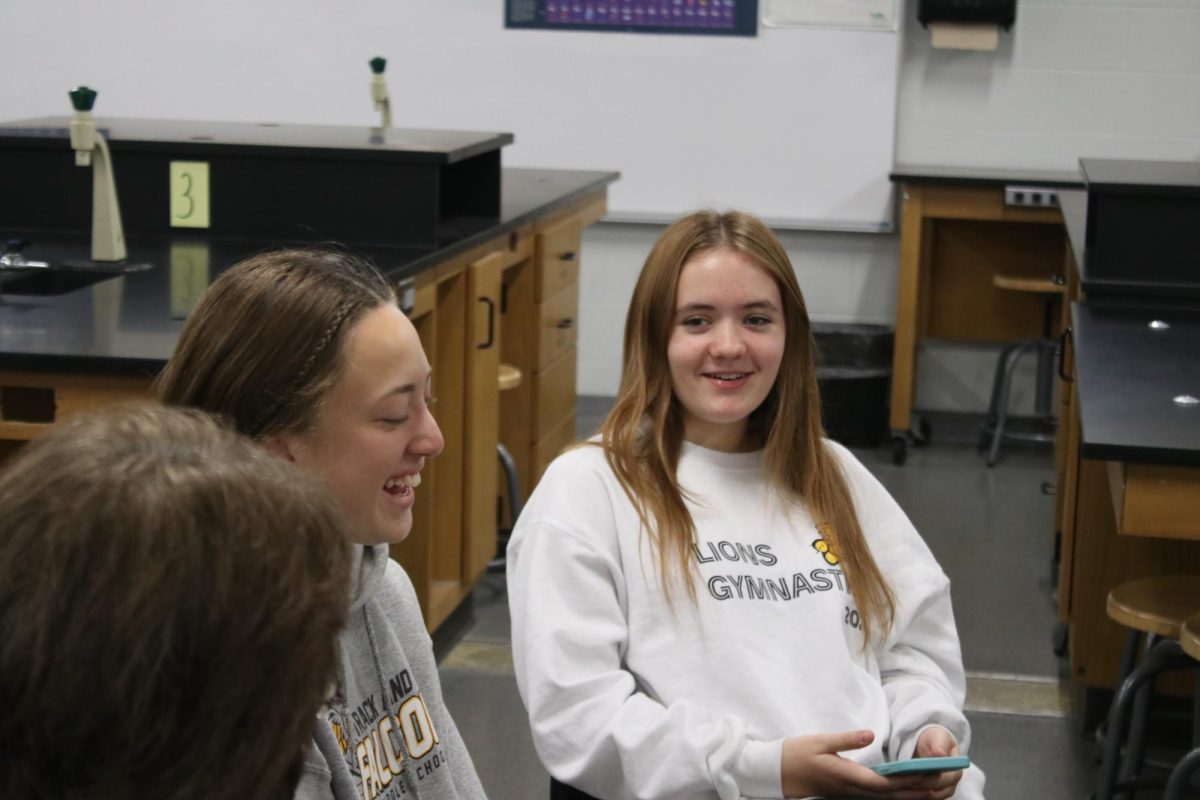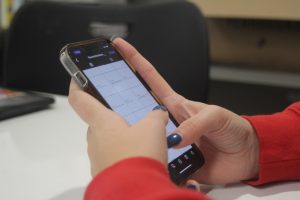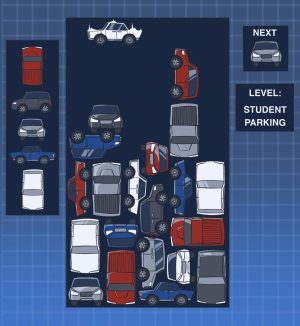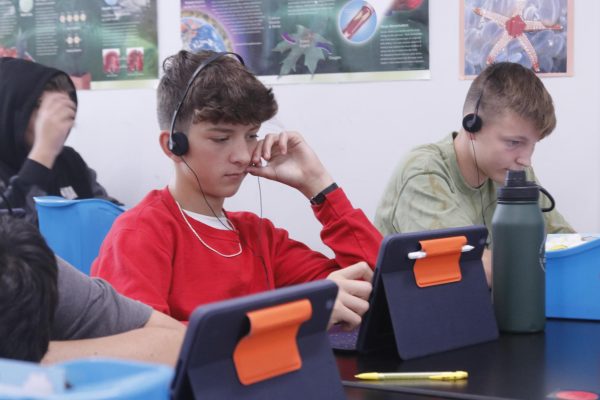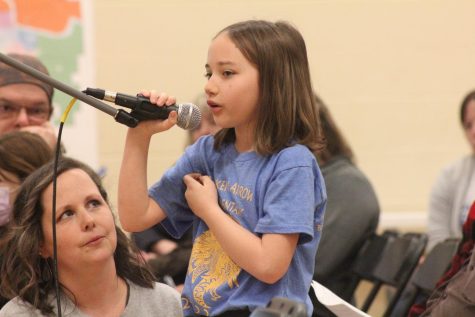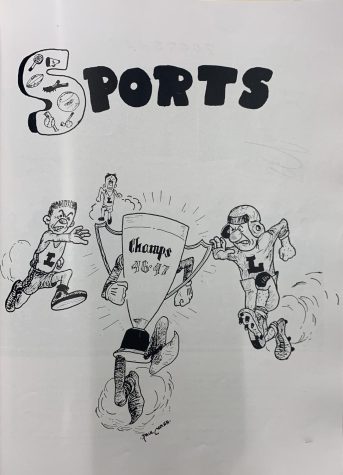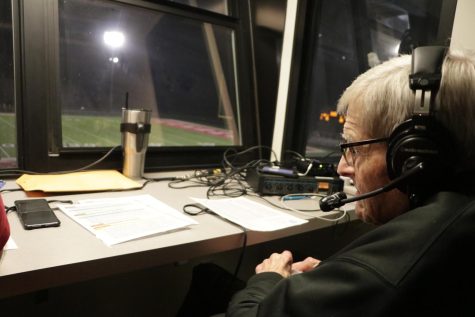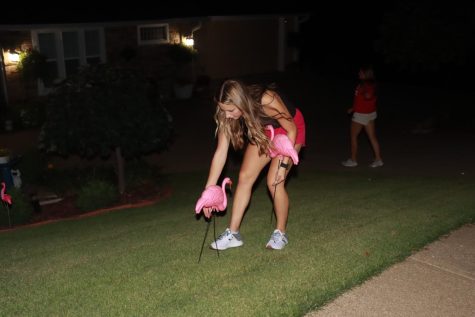ChatGPT arrives in the classrooms of Lawrence High
New AI technology with the ability to generate scholastic writing makes its way into Lawrence High
March 21, 2023
While English teacher Leah Henry was aware of a new technology that had the ability to generate fully written essays, she was not concerned until she received five essays that were clearly written by a computer.
“It is pretty easy to spot, especially if you require a specific format for essays which I do,” Henry said. “I give students lots of writing opportunities during the year, so I know their writing and what it sounds like. It raises red flags when I am getting writing that sounds completely different from other assignments.
With AI technology on the rise, ChatGPT is just one of the most recent developments. This program, which was released in November 2022, has many applications from language translation to coding, but the most popular feature is its ability to generate different forms of humanoid text. While this program is made to be a tool for learning, it can easily be abused, bringing up conversations about the ethics of this technology in the classroom.
English teacher Jeanie Merrit thinks these conversations are essential to have with students to avoid misusing the program.
“I think anytime there’s a technology leap, we just have to go back to the basics,” Merrit said. “Here’s what it means to be an academic here, here’s how you ethically use other sources and cite them so you’re not stealing ideas.”
Some teachers are doing more than having conversations with their students. Several teachers including John Harrison have begun to transition writing assignments back onto paper.
“I’m starting with gentle adjustments, handwritten outlines, more handwritten materials, using graphic organizers that have to be filled out by hand, making a list of quotations that they’re going to use, for example, a literary analysis,” Harrison said. “And I understand that those don’t necessarily mean that they won’t use AI at some point, but I’m hoping that by making it easier for them not to use it.”
The idea of this program has raised concern across the board, with some students, including junior Simeon Moulton sharing the same apprehension as teachers when approaching this technology.
“I’m personally very concerned about the idea that it can be kind of a violation of intellectual property rights from the way it operates on a machine learning basis in which whatever you put in it can use later to develop other papers and stories for people,” Moulton said. “And so when you put like a teacher’s essay prompt into it, then you’re giving the teachers intellectual property to a website.”
While many people are worried about the effects of this technology in education, junior Jooseok Oh feels differently, thinking of it as a useful learning assistant.
“I think for those who already have the skills to write it can really help them and assist them in writing, especially for those who are in a time crunch,” Oh said. “I kind of see it similarly to coding, how we really use it as a tool, like calculators. It’s really just a tool to help us be more efficient when we already know how to do it.”
Harrison took the frequent utilization of ChatGPT and turned it into a learning opportunity for his students. He assigned his AP language classes a project where they analyzed the work of the computer, had a conversation about its integrity, and responded further in a short paper.
“We were just kind of doing it in order to generate the most ridiculous responses we could,” Harrison said. “But once they’d done it, I noticed that there were some pretty obvious rhetorical tendencies, some pretty obvious word choice tendencies in it, and so I compiled a bunch of them together and had them write a short response about things that they noticed in all of the responses that they’ve gotten from the chatbot.”
Many other teachers have acknowledged the benefits of using this artificial intelligence, and Merrit described how several of her colleagues are using it as a learning tool.
“They’re using ChatGPT to kick out a rough draft and then turning it over to their students to be like, okay, how do we make voice better? What’s wrong with this essay? What do we need to fix?,” Merrit said. “And having kids get into the revision area, which we know with writing, students learn more from the revision process than they do from the actual writing process when they change things.”
While teachers admit that this technology could be beneficial, they want to emphasize to students that they should not solely depend on programs like ChatGPT.
“My only concern is that students would resort to that as an easy answer as opposed to developing their writing skills,” Harrison said. “I think for a number of reasons developing writing skills just makes us better talkers, it makes us better communicators, it makes us better at putting ideas in a logical order.”
The development of artificial intelligence is inevitable, and it will only improve over time meaning more programs like ChatGPT will come with even more capabilities. Merrit says teachers should prepare for this quickly progressing technology as it finds its way into the classroom.
“We have to evolve with it to use it as a tool,” Merrit said. “In other words, if we rely on old sources or old lessons or old kind of thought processes and we don’t keep up with it and keep up with what students are needing, they’re gonna find the tools that are more efficient.”



